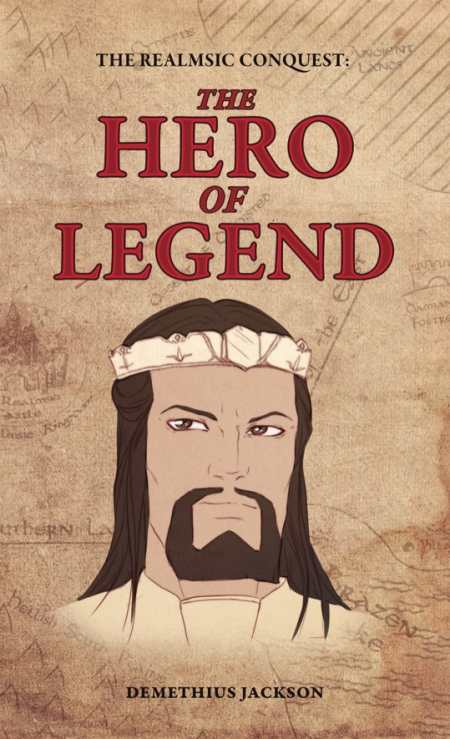
The Realmsic Conquest
The Hero of Legend
Building momentum with timeless themes, this novel piques interest through mystery and some persevering secondary characters.
Demethius Jackson’s The Realmsic Conquest: The Hero of Legend begins with a much-employed fictional scene: the stormy night. As recently crowned King Maebus broods over an impending confrontation with Damian, a warlord who opposes Maebus and the magical Realmsic Kingdom, an adventuresome novel unfolds through elaborate turns. The promising idea of royal guardianship in a volatile season struggles with revelations that extend back in history, creating an ambitious portrayal not only of confusion in warfare but also of retreat, an enemy’s pursuit, and resolution.
The kingdom, which is divided between Wizards, who practice magic, and Laymen, who refuse to use it, serves as a traditional fantasy setting as well as an ideological battleground. The novel ably draws from staples of the genre: a Realmsic Crystal (an object as guarded and highly prized as the alchemical philosopher’s stone), a round table that recalls Arthurian legend, a grand wizard whose presence is invaluable, and a quest for knowledge.
Alternating between King Mabeus’s and Damian’s perspectives, along with those of several others, the narrative shifts from an urgent tone to a more casual one. At times, characters address each other in courtly ways; at others, the dialogue slides into surprisingly contemporary expressions. The pace slows during tactical discussions between the leaders and their men.
Descriptions here tend toward extensive detail, featuring lines such as, “His mind burned with anger. Adrenaline coursed through his veins. The temperature of his body rose as a heated pressure bubbled just beneath the surface of his being. He tried to contain it, but it shot through his body.” Still, the mystery surrounding King Mabeus’s strategy is enough to pique curiosity.
Without drawing overt Christian parallels, the author builds momentum through characters who lack complete foresight but who nonetheless place their trust in King Mabeus’s guidance. Timeless themes of faith in the unseen recur. As one character notes, “My instructions are to remind you of the greater picture, the ultimate plan. I am to remind you that you, too, must accept the impossible,” while another speaks of stepping out in faith. Some readers may question the late revelation of a prophecy and, in turn, a solution to the conflict.
If The Hero of Legend occasionally frustrates in its plot sequencing, it rewards patience through secondary characters such as Elva, an elder council member, and a pair of brothers, Hom and Heegan, all of whom add needed dimension to this tale of perseverance amid the brutality of war.
Reviewed by
Karen Rigby
Disclosure: This article is not an endorsement, but a review. The publisher of this book provided free copies of the book and paid a small fee to have their book reviewed by a professional reviewer. Foreword Reviews and Clarion Reviews make no guarantee that the publisher will receive a positive review. Foreword Magazine, Inc. is disclosing this in accordance with the Federal Trade Commission’s 16 CFR, Part 255.
